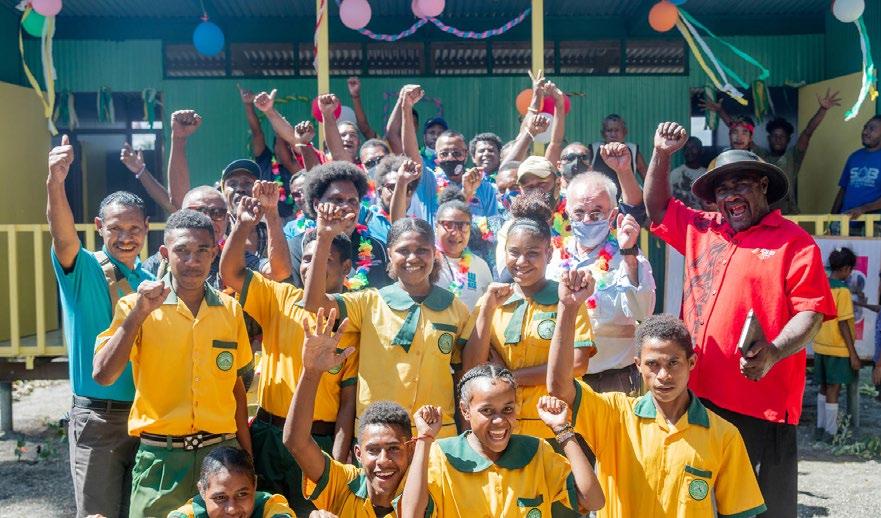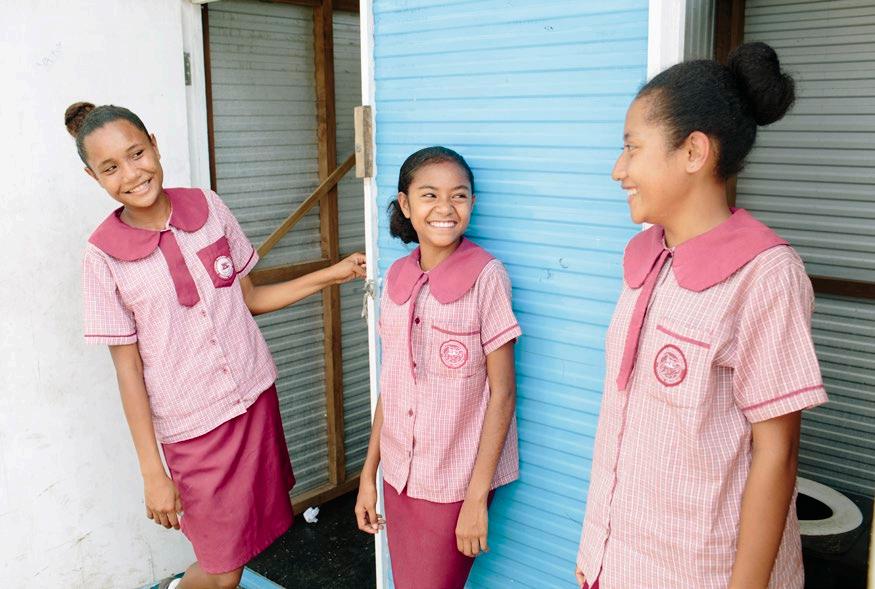
2 minute read
Sanitation
How sanitation is keeping girls in school in Papua New Guinea
Access to decent sanitation in Papua New Guinea (PNG) is challenging, with fewer than three in ten people having access to a decent toilet. This issue extends to schools in the country, with over half the schools in PNG lacking access to a decent toilet. Without access to these facilities, students often have to leave school to use a toilet or miss school altogether. Lack of access disproportionality affects girls, who without a space to safely manage menstruation, often miss many hours of school when on their periods. The most recent study done by UNICEF in 2018 found that only 17% of schools in PNG have proper WASH facilities to manage their periods safely and with dignity. It also found that girls can miss up to three days of school a month when they stay home due to not having adequate facilities to manage their periods. This finding has been confirmed from the baselines carried out by WaterAid PNG in the schools we support.
Advertisement
With the support of our partners, we have
provided inclusive WASH facilities to 4,372 (1957 females, 2415 males) primary schools students in six schools in Wewak District and Central province in FY22.
Students outside WaterAid toilets at a Primary School in Rigo District, Papua New Guinea Celebrations of the opening of a new inclusive toilet block at Gaire School in Wewak, Papua New Guinea

WaterAid/ Tom Greenwood Each of the WASH facilities include the standard design of toilets for boys and toilets for girls, one urinal for boys, one menstrual hygiene management (MHM) unit, water reserve water tanks and two toilets (one male, one female) specifically designed for persons with disabilities.
The standard designs are further contextualized by detailed baselines conducted for each school before implementation, which determine the number of standard toilets, and capacity of water storage as well as the type of water supply system. WaterAid has worked closely with our key partners on this project, including the provincial and district governments including the Education Divisions in project design including school selection. This process has ensured the WASH services are reaching the most needed.
At the opening of their new inclusive WASH facilities, Ginigolo Gunugau Primary School Student Representative Head Girl Maura James said she was grateful on behalf of the 471 students for the 11 new toilets that will replace the two old ones that the school was using.
“Our girls will now no longer go home and miss classes during menstruation because now we have a safe place,” she said, referring to the new MHM building built.









